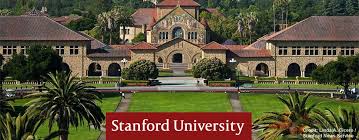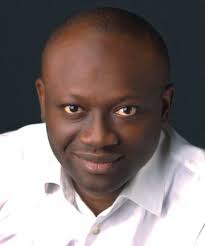Stanford Seed Entrepreneurs Join Obama, Top Silicon Valley Business Leaders, at Global Entrepreneurship Summit

| Stanford Seed Entrepreneurs Join Obama, Top Silicon Valley Business Leaders, at Global Entrepreneurship Summit |
| Milling around him were 700 other entrepreneurs from 170 countries, all gathered to participate in the 2016 Global Entrepreneurship Summit |
| Afolabi Abiodun, CEO of Nigeria-based telecommunications company SB Telecoms, couldn’t quite believe his eyes as he stood on Stanford University’s (www.GSB.Stanford.edu) bustling Silicon Valley campus recently. Milling around him were 700 other entrepreneurs from 170 countries, all gathered to participate in the 2016 Global Entrepreneurship Summit. For the next three days, Abiodun, a graduate of the Stanford Seed Transformation Program, took part in presentations and workshops featuring scores of international business leaders; networked with dozens of new colleagues and potential investors, and attended a keynote address by U.S. President Barack Obama. “It’s like a dream come true to be here,” he said. “Within two years I have gone from a business with 10 employees, to one with 39 employees directly and close to 150 indirectly. Now the boy from the streets of Nigeria has been invited by the White House for the Global Entrepreneurship Summit; that is all thanks to Stanford Seed. Isn’t that amazing?” The conference was held June 22-24, hosted by the U.S. State Department and the White House. It was the seventh meeting of the annual international event, which brings together entrepreneurs and motivated investors from around the world to create new opportunities for both investment and collaboration. Abiodun was at the GES with other graduates of the Stanford Seed Transformation Program (http://apo.af/D4Ubco), a program offered by the Stanford Institute for Innovation in Developing Economies, known as Stanford Seed. The program brings Stanford’s innovative and entrepreneurial mindset to promising business owners in developing economies who want to expand their firms. The 12-month course is taught by GSB faculty members, who travel to Seed centers in both West and East Africa, working with company leaders to grow and scale their firms, create new jobs, and, ultimately, help lead their regions to increased prosperity.  “Being around Stanford Seed people, Seed faculty, and in the glorious environment of this university brings a lot of focus around how you think and how you put things into play,” said Seed entrepreneur Abimbola Okubena, executive director of Nigeria-based nutraceutical company Health Forever. “I am taking home a wealth of knowledge I have gathered. And I am going back home with a huge Rolodex!” Stanford Seed was active at the GES, hosting a private luncheon for its visiting entrepreneurs and co-sponsoring an investor pitch session in collaboration with VLAB, the San Francisco Bay Area chapter of the MIT Enterprise Forum. Seed Advisory Board members Matthew J. Bannick, managing partner of Omidyar Network, and Jacqueline Novogratz, founder and CEO of Acumen, also lent their expertise to a panel discussion on the value of impact investing in emerging markets. Access to capital was a prominent GES theme, as expressed by U.S. Secretary of Commerce Penny Pritzker. “My team has been focused on making sure investors attend the summit, and that you, our entrepreneurs, have the opportunity to make key connections for greater access to capital,” she said. “This year we have almost one investor for every two entrepreneurs.” During his keynote address, President Obama stressed the importance of entrepreneurship in a today’s increasingly connected world. “Entrepreneurship remains the engine of growth,” he told audience members. “When people can start their own businesses, it helps individuals and families succeed . . . It can make whole communities more prosperous and more secure.” Enthusiastic Seed graduates at the GES said the opportunity to experience Silicon Valley and its innovative thinking, to learn from world-class business leaders and to network internationally was hugely inspiring. “I see it as a real privilege,” Abiodun said. “I established new relationships that I could never have imagined I would have access to.” Nicole Amarteifio, founder of Ghana-based television and film production company An African City, agreed. “I am very happy to be here,” she said. “You can feel the energy . . . It is a global energy, and it is really exciting to be a part of that.” The Stanford Institute for Innovation in Developing Economies is led by Stanford University’s Graduate School of Business, and works to help entrepreneurs based in developing economies grow and scale their businesses and lead their regions to greater prosperity. The Seed Transformation Program is taught by Stanford GSB faculty at Seed’s West Africa Center in Accra, Ghana, and at its East Africa Center in Nairobi, Kenya. The application period for the Seed Transformation Program opens on Sept. 5, 2016 for its 2017-18 sessions; deadline for applications is Oct. 31, 2016. To find out more, visit: http://APO.af/D4Ubco.
*** Subscribe to JarusHub for more news on entrepreneurship [subscribe2]
|
Established in March 2013, JarusHub is a Nigerian information hub with focus on career and management. It is rated Nigeria's most authoritative destination for online career resources. It parades an array of Nigerian professionals who share their career experiences with a view to bridging career information gap and mentoring a generation to success. JarusHub has revolutionised career information and experience sharing in Africa. Whether you're a student, a recent graduate or an established professional, or even an executive, you will always find something to learn on JarusHub. All enquiries to jarushub@gmail.com or 0808 540 4500. Facebook: www.facebook.com/jarushub; Twitter: @jarushub or @mcjarus.
Top 10 Jobs across Nigeria in March 2019
March 1, 2019
Let us have your say by leaving a comment belowCancel reply
Recommended For You
-
Jarushub Career & Mentorship Class on September 21
August 16, 2013 -
Career Advice: CBN vs FIRS vs Big 4
October 6, 2020 -
The Gamification Route for Efficient HR Management
June 5, 2015





